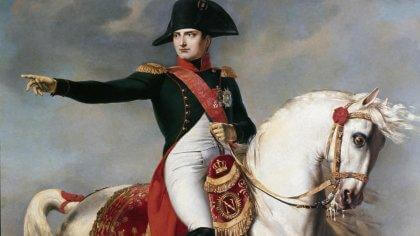Napoleon’s complex is a term used to describe the inferiority complex suffered by some small people, people suffering from this complex have to deal with certain feelings of personal insufficiency associated with lack of size.
As a result, people in Napoleon’s complex often make up for their small size with negative behaviors in their lives: they can become more aggressive and jealous. This complex is also known as the Napoleonic complex or the “low man” complex. mental disorder, so it does not appear in the Diagnostic and Statistical Manual of Mental Disorders (DSM).
- Despite this.
- Many psychological studies refute or confirm the existence of this complex.
- In this article we will talk about the characteristics and origin of the Napoleon complex.
It seems that negative feelings and thoughts, both towards others and oneself, are more likely in small people, so, according to this logic, many of the small people who act defensively or are aggressive can be considered to suffer, to some extent, from Napoleon’s complex.
This complex seems to be more common in men, especially those operating in a competitive environment, so Napoleon’s complex can be described as a defense mechanism against certain height-related social stigmas.
It should also be noted that Napoleon’s complex can be associated with a pejorative social stereotype, which sometimes becomes a stigma that follows any attitude of small people, so not all small people are aggressive or inclined to shout and talk a lot to attract the public. attention of others and, in this way, prove their worth.
Napoleon’s complex refers to the famous French emperor Napoleon Bonaparte. According to some chronicles of the time, Napoleon tried to regain the authority that his lack of centimetres could jeopardize by enduing his treatment of others.
Some scholars even consider that the low man complex largely motivated his tyrannical attitude and ambition to expand the French empire, anything to compensate for its small size. They also associated this inferiority complex with other Titanic leaders, such as Hitler and Mussolini.
However, the fact that this complex is known as Napoleon is not as successful as you think, Napoleon was about 1. 70 meters high and the average height in France of his time was 1. 69 meters, so it was average.
However, there are several reasons for the idea that Napoleon might have this perception, the first is that he was always accompanied by the Imperial Guard, mainly men of above average stature, so there are several paintings depicting the emperor of shortest stature his guard.
Another reason may be the British smear campaign against Napoleon Bonaparte, who, despite his status, used to celebrate and get drunk on low-ranking soldiers, so Napoleon earned a reputation for having fun with low-ranking soldiers, which the English used to spread rumors about the emperor’s small size.
There is a wide variety of scientific and social studies that seek to test or refute the existence of Napoleon’s complex, some researchers consider that this complex has no scientific basis and that its definition does not go beyond social stereotype. there are researchers who have shown some predisposition to making low men more jealous and aggressive.
In 2007, an experiment was conducted at the Central University of Lancashire suggesting that Napoleon’s complex is a myth. This study consisted of two people hitting each other in the joints of their fingers with sticks.
As a variable the pulse was measured and it was found that smaller men showed no greater tendency to anger after receiving the blow, but that large and small men were predisposed to react aggressively, so researchers consider Napoleon’s complex to be, in essence, a stereotype for small people.
On the other hand, a study conducted at the University of Vrije in the Netherlands would confirm the existence of the complex, the study consisted of several people of different stature playing the dictator’s game: a game that proves how fair and honest an individual can be with others. found that smaller people reacted more aggressively during competition in psychological play.
In addition, some psychologists, such as The British Lance Workman, consider that small people are no longer aggressive, but for Workman excessive jealousy would be true. Therefore, it links Napoleon’s complex to jealousy and not aggression.
The controversy surrounding Napoleon’s complex is undeniable, so some use it as a social stereotype to justify the negative attitudes of small people, while others, on the other hand, see it as a defense mechanism for smaller people compared to taller people.
One way or another, we are talking about a phenomenon that, studied, has produced contradictory results, feeding one of the indirect legacies of this man who once wanted to conquer the world.

